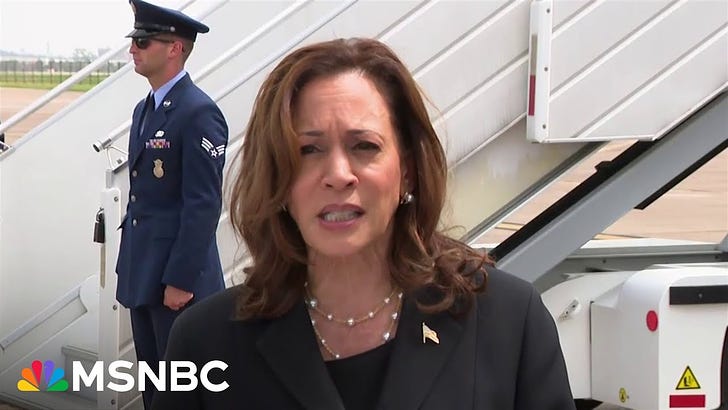Has Putin Concluded Trump Can't Win?
Plus: Why Trump Could Never Ever--Never Ever Never Never--Have Pulled Off Today's Prisoner Exchange with the Russians
It is impossible to overstate the complexity of the prisoner exchange that took place on Thursday. It is also absolutely certain that a Trump Administration could never have pulled it off. But what may be most interesting of all is whether the deal itself is a sign that Vladimir Putin is beginning to doubt that his candidate for useful-idiot-in-chief is actually going to be returned to the Oval Office.
Trump, of course, reacted to the news of the deal by implying that he could have done it better. He also failed to show even the slightest interest in the well-being of those being released or any happiness at all for the families involved. That is because, of course, of course, he does not care about anyone but himself. He saw the deal in mono-dimensional terms, solely from the perspective of what it meant for him and in particular for his reelection challenges.
Weeks earlier, Trump had indicated that his influence with Putin was so great that shortly after he was re-elected—and not before—he would win the release of Wall Street Journal reporter Evan Gershkovich. This was stunningly a recklessly irresponsible thing to say as it sent a message to the Russians to hold on to Gershkovich and the other Americans being detained until after the election. It rings especially cynical now as we learn how long and delicate the negotiations behind the multi-country prisoner exchange actually were.
But since there is a chance Trump could be re-elected, it is worth touching on just a few of the reasons why he could never have pulled this deal off:
First and foremost, we know he couldn’t have because he didn’t. Paul Whelan, for example, was taken prisoner when Trump was in office and he was not freed during Trump’s term. We also know how poorly some of his other efforts in this area went. In one instance, when his administration secured the release of three American prisoners from North Korea, he was correctly criticized for giving up too much in exchange—a summit with Kim Jong Un that was long sought by the North Korean leader—and for using the release to heap praise on the North Korean tyrant. In another earlier such instance, while the Trump team won the release of student Otto Warmbier, Warmbier was gravely ill and died shortly afterwards and his parents were outraged that Trump again used the occasion to heap praise on Kim.
Next, this diplomacy required working closely with allies. Trump famously alienated many of our allies, notably those in Europe. In the case of today’s deal, for example, Germany played a central role. Trump had terrible relations with the Germans. In fact, given the current presidential campaign it is worth noting that Kamala Harris played an active role in achieving the complex deal by, in one case, meeting with German Chancellor Olaf Scholz on the edges of the Munich Security Conferences this past February and advancing the negotiations materially. She also met at that time with another cooperative ally, the Slovenians. Her deep foreign policy experience and close ties with world leaders will increasingly emerge as one of her big advantages in the campaign to come—and will contrast with the very low esteem in which Trump was held around the world.
Keep reading with a 7-day free trial
Subscribe to Need to Know by David Rothkopf to keep reading this post and get 7 days of free access to the full post archives.



